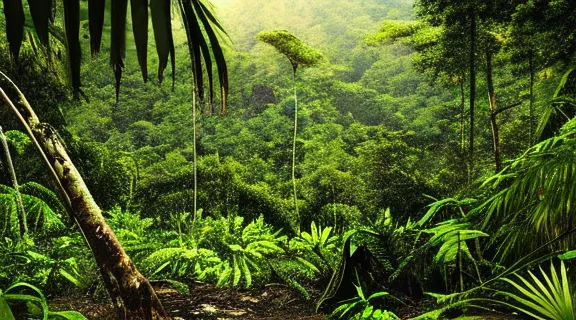A "Natural" Question: Is Mankind A Natural Process?

The question of whether human activity is natural or not has long been a topic of debate among philosophers and scientists alike. Some argue that human civilization and technology represent a fundamental departure from the natural world, while others contend that humans are simply a part of nature, subject to the same laws and principles that govern the rest of the living world.
In favor of the idea that human activity is natural is the fact that humans are biological organisms that share many characteristics with other living beings. Our bodies, brains, and behaviors are the result of complex biological processes that are governed by the laws of physics, chemistry, and biology. In other words, human beings are products of nature, and as such, our actions can be considered natural.

Moreover, this view point is supported by the fact that everything in nature has its own purpose, and it can be argued that humans must also serve specific "natural" purposes. Additionally, it is important to note that the term "natural" comes from the Latin word "natus," which translates to "born." Thus, suggesting that nature is something that is born and not directly related to what happens after birth, as everything that comes after being born would be a product of that "natus."
Another key piece of evidence supporting the idea that human activity is natural is the fact that human civilization and technology are intimately connected to the natural world. From the materials we use to construct our buildings and tools, to the energy sources that power our economies, human civilization is dependent on the natural resources and processes of the earth. Furthermore, the impact of human activity on the natural world is shaped by a range of natural factors, including climate, geology, and biodiversity.
Additionally, studies in cognitive science and neuroscience have shown that the brain of humans and animals have similar neural structures and functions, which means that human behavior is also subject to the same natural laws as animal behavior. The human brain is also subject to natural laws and principles that govern the rest of the living world.

While these arguments support the idea that human activity is natural, it is important to also acknowledge the impact that our actions have had on the natural world. Our "natural" human activity, such as urban development and the creation of technology, has led to significant changes in the environment and has had a profound impact on the delicate ecosystems that exist around us.
From the destruction of natural habitats to the pollution of the air and water, human activity has altered the natural balance of the world in ways that have far-reaching consequences. The rapid expansion of urban areas and the construction of roads, buildings, and infrastructure have led to the loss of biodiversity and the fragmentation of natural habitats, which has had a significant impact on the survival of many species.
Also the production and disposal of electronic waste, often associated with the creation of computers and other technology, has had a negative impact on the environment. The toxic materials used in the production of electronics can leach into the soil and water, causing harm to both human health and other natural environments.
Safety regulations and land management practices have played a role in shaping the way we experience nature, but it's important to understand that those regulations and practices were put in place due to the negative impact of human activity on the "natural" world. While these regulations and practices have helped to mitigate some of the damage, it's essential that we continue to work towards finding ways to live in harmony with nature, rather than exploiting and manipulating it for our own gain.

While it is true that human activity may be inherently natural, it is also important to consider the ways in which our actions have altered and manipulated the world of natural processes; and in turn if we wish to preserve specific "endangered" processes of nature then we must take responsibility for our impact on the environment and work toward finding sustainable solutions that allow us to live in harmony amongst all the various ecosystems we want preserved. In ways it relates to principles of what is good or evil, another topic deserving of it's own attention.
And so we may find the question of whether human activity is natural or not, can be complex; and that it requires a multifaceted approach. Even though humans are biological organisms that share many characteristics with other living beings and are subject to the same laws and principles that govern the rest of the living world, it is also important to consider the ways in which human activity has altered and manipulated our surrounding natural world. Ultimately, the nature of it's entirety is an elaborate system that can be potentially be broken down into an unfathomable variety of catagories and topics, which are all interconnected: and in that what is natural indeed exists ultimately as both a disruptive and productive source, despite if coming in the form of human activity or not.
